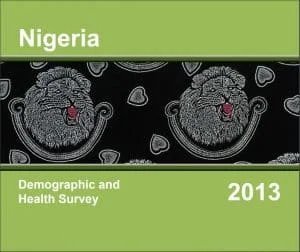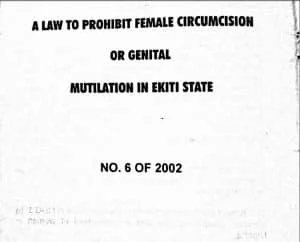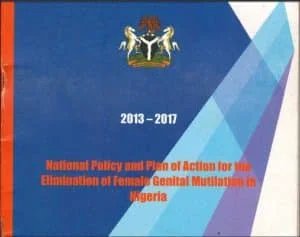Nigeria Demographic and Health Survey 2013
The NDHS 2013 provides information on the population and health situation in Nigeria that is very key for programming. It is the 5th survey since the first one in 1990. It gives an analysis on health related issues, prevalence and dominance in Nigeria. Onelife Initiative’s reproductive health issue work is guided by data from this document. Policy drivers and programme officers and managers in the development health space also depend on it.
You can access a copy of the 2013 version here. Meanwhile, you can also compare and view previous NDHS Reports here – 1990, 1999, 2003, 2008

Ekiti State Female Circumcision (Prohibition) Law, 2002
In 2002, having been confronted with facts around FGM, the House of Assembly of Ekiti State of Nigeria enacted a law to prohibit FGM. Under this law, a fine of N10,000 or a term of imprisonment not exceeding 2 years in the first instance and imprisonment for a term not exceeding 3 years without an option of fine for every subsequent conviction is spelt out for perpetrators of Female Genital Mutilation. This law addresses only Female Genital Mutilation and enables police force, officers of ministry of health, health officers in the local government areas and any person authorized by law to arrest offenders of this law. The first executive governor of Ekiti State, Otunba Adeniyi Adebayo signed the law.
Click here to download a copy of Female Circumcision (Prohibition) Law, 2002

National Policy and Plan of Action for the Elimination of Female Genital Mutilation in Nigeria
The Policy and Plan for the Elimination of FGM is an effort of the Federal Ministry of Health with inputs from various stakeholders. The document was ratified at the 56th National Council on Health in 2013. The document aims to have its implementation contribute to the significant reduction of FGM prevalence across all tiers of government in other to improve the quality of life of girls and women.

Oyo State Violence Against Women Law 2016
Oyo State Governor, Senator Abiola Ajimobi on the 23rd of January, 2017 signed Oyo State Violence against Women bill into law. The law prohibits harmful traditional practices against women (including Female Genital Mutilation). Every form of violence against women in public and private life is also forbidden. According to the law, any person found guilty of performing female genital mutilation is liable to imprisonment for a term not exceeding four years or a fine of N100,000 or both. Punishments are also spelt out for accessories.

National Reproductive Health Policy 2017
This policy is a follow-up on other attempts and policies at promoting Reproductive Health of Nigerian citizens. National Reproductive Health policy 2017 analyses the current situation of reproductive health in the country and also discusses the federal government intervention in the context of national development efforts. It is the third edition. It also provides the road map to addressing the reproductive health necessities of Nigerians as it connects to ensuring national development.
Click here to download a copy of National Reproductive Health Policy 2017

